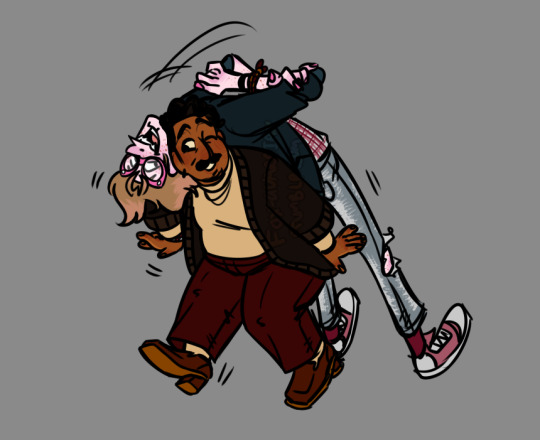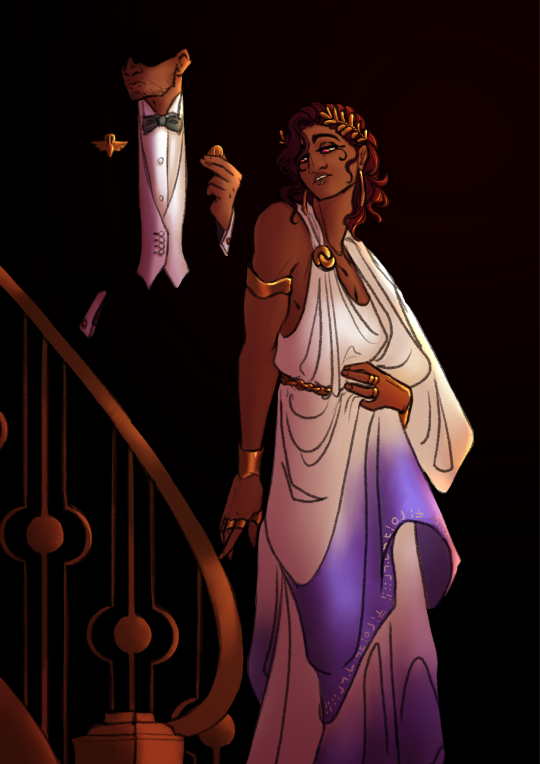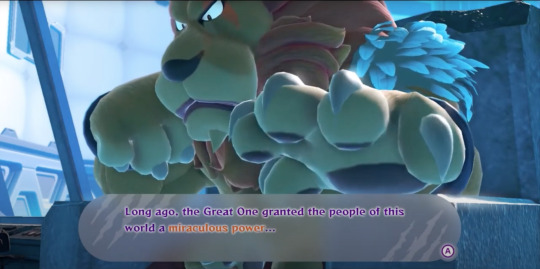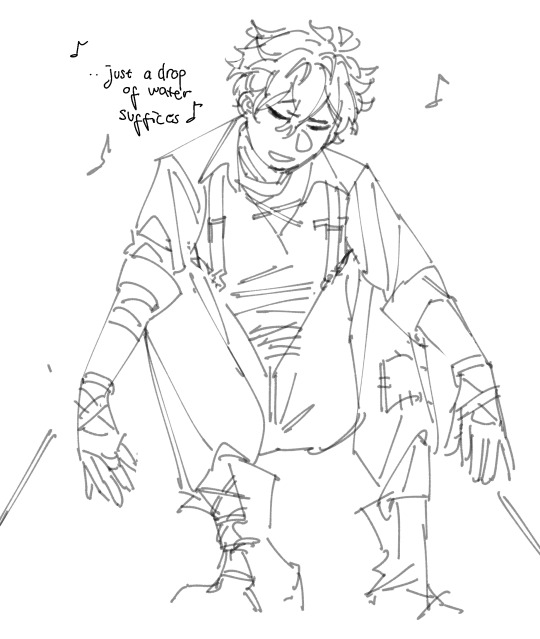#code civil
Explore tagged Tumblr posts
Note
Given that you are more knowledgeable than me in these matters, how problematic adopting a child during the Napoleonic Era was? And let's say, a child was born from a secret affair, what would have happened if it was discovered? What kind of issues the wife and the child would have encountered? Lastly, how hard would have been for the real biological father to adopt their child, after the death of the supposed father?
Feel free to contradict me if I say anything nonsensical; once again, I’m not infallible.
The short answer: I have no idea about adoption. During napoleonic era if the wife were caught in flagrante delicto with an adulterous child, the husband could, in addition to requesting a divorce, have the wife imprisoned, and it’s possible that the court would grant the husband’s request since adultery for a women is punishable by a prison sentence while the husband will only be entitled to a fine . (This is why I think that Jacques-Marie Botot, despite becoming bitter towards Sophie, the widow Momoro, according to some sources, because he fell from disgrace during napoleonic era, still had enough decency to let her go with her lover and not cause her trouble. The fact that she had a child by her lover and was not pursued by the police might be why Botot never mentioned in his records that he had divorced his wife, among other things but like I said before it was not the villain Sophie or the villain Jacques-Marie, I think the wrongs were shared). The child would have lost much of their inheritance.
Well, the third response is very complicated, as you’ll see in the long answer I’m about to give. But yes, the father can acknowledge his child, although there are several obstacles and issues with that, even though he will have certain prerogatives.
By the way, for some courts under Bonaparte, there was an estimation that children from adulterous relationships were considered "monstrosities in the social order" and a "real calamity for morals," according to the terms of the tribune Lahary. This shows how much this weighed on their shoulders.
Warning: I will discuss the rights of natural children during the Revolution before addressing Bonaparte
Napoleon once said, "Society has no interest in recognizing bastards," and he ordered this in the Civil Code. During the Revolution, some revolutionaries fought to ensure equality between illegitimate and legitimate children. Speaking of Prieur (since this is the origin of the question😊 due to my comment about his goddaughter/daughter in your excellent post ), an interesting point about the city of Dijon is that some of cahiers de doléances, such as those from the Third Estate of Dijon, expressed the desire to improve the conditions (of natural children) so that they would be useful to the state. Others, like those from certain communities of Aix, demanded that they be granted civil and political existence. These demands were realized early in the Revolution: the 1789 Declaration of the Rights of Man and Citizen abolished "bastardy," and the law of 12 Brumaire, Year II (1793), granted natural children the same inheritance rights as legitimate children.
On June 4, 1793, Cambacérès, on behalf of the Committee of Legislation, presented a draft decree aimed at granting rights to natural children. In his speech to the Convention, he emphasized the importance of restoring equality that had been destroyed by the old law, asserting that the Convention must "restore the rights to natural children that had been so unjustly taken from them." However, it should be noted that not all revolutionaries agreed on granting rights to natural children.
Cambacérès' draft decree was part of a political will to grant all citizens, including children, their civil rights, regardless of age, gender, or status. This marked a significant step forward, as it recognized rights for children, beings naturally dependent on adults, thus realizing the revolutionary principle that "all men are born free and equal in rights." This initiative fulfilled the promise of 1789.
The question of inheritance rights for natural children was first raised on September 20, 1792, by Léonard Robin, who proposed that they inherit from their parents, though not on equal footing with legitimate children. This debate, centered on inheritance, concerned not only the rights of natural children but also those of their mother and the restrictions imposed by the presumed father.
However, the initial decree by the Committee of Legislation did not go as far. It granted natural children inheritance rights from their father, but with restrictions: if legitimate children existed, they should not be disadvantaged. In 1793, a proposal was made to eliminate the term "bastard," a term seen as insulting, replacing it with "natural child."
Léonard Robin's proposal, on the other hand, went further by granting mothers the exclusive right to designate a father for their child, believing that women were the only ones who could judge paternity. This position sought to protect mothers from the abuses of men trying to claim the inheritance of a child born out of wedlock, particularly those trying to claim a significant inheritance.
However, in August 1793, Cambacérès' new draft rejected the possibility of paternity investigations. This draft prioritized the rights of the father, allowing him to choose whether or not to recognize his natural child, without the mother being able to force recognition. This was based on the idea that paternal recognition should be the free will of the man, not an obligation imposed by the law.
The reasons for this restriction were mainly economic: once natural children had the same rights as legitimate ones, recognition of paternity had significant consequences, especially regarding inheritance and family name. As a result, fathers now had the right to choose whether or not to recognize a child and include them in their family, while mothers remained solely responsible for the child.
Berlier, a member of the Committee of Legislation, justified this position by stating that the mother alone was responsible for the situation of her natural child, as she had not secured a "paternal status" beforehand, meaning a marriage contract. Although Berlier was sympathetic to the suffering of natural children and their mothers under the Ancien Régime, he believed that paternity recognition should remain a father's right to prevent abuses and fraud. He also highlighted the practical and economic consequences of recognition: once a natural child was recognized, they were entitled to a share of the inheritance, which represented a significant "cost" to the father. (This once again shows the limits of revolutionary ideas, and I say this without bashing).
As an example, historian Suzanne Desan, after studying the decisions of the Committee of Legislation and the Court of Cassation between 1794 and 1804, shows that the few natural children whose cases were examined by the authorities were systematically deprived of their rights. Provincial courts strictly applied the law of 12 Brumaire, making it very difficult to recognize paternity. For instance, a 40-year-old woman, Marie-Catherine Dampville, tried to prove her paternity with her deceased father by producing a baptismal certificate and witnesses, but these were deemed insufficient. The law now required more rigorous written proof, such as a marriage promise or demonstration of "continuous care," which she could not provide.
Now let’s return to the subject of Bonaparte, the Civil Code, and the rights of natural children.
Aside from the phrase he said about natural children (it is worth noting that he used the term "bastards," a word considered insulting by the revolutionaries who tried to erase it by using the term "natural children"), here is what Bonaparte said: "As soon as there is a possibility that the child might be the husband's, the legislator must turn a blind eye." But he also says, "There must be a fixed rule to remove all doubts," Napoleon Bonaparte continues. "It is said that this is against morality. No; because if the absolute principle were not adopted, the woman would say to her husband: 'Why do you want to limit my freedom? If you suspect my virtue, you can prove that the child is not yours.' This must not be tolerated. The husband must have absolute power and the right to tell his wife: 'Madam, you will not go out, you will not go to the theater, you will not see such and such a person; because the children you bear will be mine.'"
Now, the legal articles: "A child conceived during the marriage has the husband as its father. The law does not accept exceptions to this paternity, neither the wife’s adultery nor the husband's natural or accidental impotence." The Civil Code, through principles like the wife’s obedience and her obligation to follow her husband, as well as harsher penalties for female adultery, tends to limit women's rights. Paternity presumption and the prohibition of questioning paternity are in effect.
The evolution of paternal rights in France, particularly through the laws of Year II and the 1804 Civil Code, highlights that these laws, which were supposed to offer more rights to natural children, actually reinforced the rights of fathers to the detriment of unmarried mothers and their children. Historians have identified a conflict between equality among children, regardless of their origin, and the father's liberty, with the father generally holding dominion.
Despite these inequalities, the laws of Year II are sometimes considered a precursor to modern fatherhood, emphasizing paternal will rather than biological reality. The 1804 Civil Code, with its presumption of paternity, perpetuated this logic, allowing the father to assert his paternity regardless of biological truth. This legislation, while emphasizing the appearance of a legal union, also strengthened the surveillance of women by their husbands, particularly to prevent non-biological children from being attributed to a father.
Natural children, born out of wedlock, do not have the same inheritance rights as legitimate children and are excluded from their parents' inheritance unless they are legally recognized. The legislation emphasizes social stability and the preservation of public order through the family, which is seen as a foundational pillar of society. The Civil Code reinforces the authority of the father within the family, aiming to restore the order disturbed by the excesses of the Revolution.
In summary: The legitimization of natural children through the marriage of their parents is allowed, which enables them to acquire the same rights as legitimate children. However, this legitimization assumes that the parents intended to marry at the time of the child’s birth, which is seen as a means to preserve moral and social order. In contrast, children born of adultery or incest are excluded from any form of legitimization and cannot benefit from family-related rights, as their situation is judged to be too contrary to social order.
In short, the 1804 legislation, while granting some possibilities for reintegration for natural children, primarily seeks to maintain social stability and paternal authority, emphasizing the clear distinction between legitimate and natural children.
Although legitimate children, born within marriage, benefit from full inheritance rights, natural children cannot claim total equality. Their share of inheritance depends on several factors, including the presence of legitimate children or ascendants, and is generally less than that of legitimate children. The 1804 legislation provided specific rules for natural children: in the presence of legitimate children, their share of the inheritance is reduced to one-third of what they would have received if they were legitimate. If the parents have no legitimate descendants or ascendants, their share is larger, up to half of the estate. Some proposals from appellate courts, such as from the Tribunals of Grenoble or Brussels, suggested increasing this share in certain cases, especially if the natural child was the sole heir or if the parents had no legitimate children.
Overall, the 1804 Civil Code recognizes a right to inheritance for natural children, but this right is limited compared to that of legitimate children. This solution aimed to strike a balance between fairness for natural children and the preservation of social order, which favored legitimate families.
Some courts contested a provision of the 1804 Civil Code that limited the inheritance share of natural children, even when they had already received a significant portion of their parents' estate during their lifetime. The Lyon and Bourges Tribunals considered this restriction unjust, as it added an additional inequality to natural children, already deprived of the benefits of legitimacy. Moreover, the legislation prevented parents from making donations or wills in favor of their natural children without reducing their inheritance share, which was also deemed unfair. Some courts called for the advance payment of succession liquidation costs by the heir, so as not to penalize natural children, who were often in precarious situations.
Some lawmakers in 1804 addressed the issue of children born of adultery and incest. Although considered a "monstrosity" and a "calamity for morals" by some, lawmakers felt that these children should not be left in poverty. Figures like Chabot de l'Allier and Siméon insisted that, despite their disapproved birth, these children remained human and deserved pity and support. However, the framers of the 1804 Code did not recognize the rights of adulterine or incestuous children on par with legitimate natural children. They were granted "aliments" (support), but these were strictly regulated and proportional to the parents’ income and the number of legitimate children. Society was required to provide them with support to enable them to lead a useful life, but recognition of their right to a fair share of inheritance was excluded, except in cases of donations or wills that respected the hereditary reserve.
Portalis also stated about natural children, "They belong to no family, but to the State." He also said, "When children, whether natural or legitimate, reach adulthood, they become arbiters of their own destiny; their will suffices." Legislators acknowledged that both children born within marriage and natural children, as long as they had not reached adulthood, deserved protection, particularly in terms of marriage. Parental consent was deemed essential, not only for the public interest but also for the child's welfare, as marriage was seen as a fundamental institution for social and family order. However, natural children, being deprived of legitimate recognition, were considered differently. Some, like Defermon, believed that natural children should be free to dispose of their rights, particularly regarding marriage. However, others, such as Tronchet and Boulay, felt that these children, lacking stable family support, required special protection, especially in contractual matters and marriage. Thus, parental consent was required for minor natural children, and in the event of the parents’ death, a guardian had to be appointed, preventing marriage before the age of 21 without such authorization.
Recognition of paternity was still in place. The father who recognized his natural child had rights over the child's education and, in particular, the right of correction: "The examples of parents, their exhortations, are not always sufficient means to keep certain children, who may have developed vices or bad inclinations, in line with duty: public authority then joins the paternal magistracy, but with precautions compatible with the family’s interest." This is why natural children could not be excluded from measures aimed at overseeing their education and behavior. In particular, the father, whether legitimate or natural, had disciplinary power over his child, including in cases of delinquency. Thus, just as with legitimate children, natural children under the age of 16 could be arrested at the father’s request, by order of the district court president, and imprisoned for up to one month. For children aged 16 to adulthood, detention could be extended to six months, depending on the severity of the situation. This measure aimed to strengthen parental authority and maintain social order, giving fathers the power to control their children's behavior, even when those children were born out of wedlock.
However, don't forget one thing: if the father recognizes his adulterine child from a married couple, the child loses much of their inheritance. Furthermore, as we can see in the post, they are sometimes treated with various insults. So, it’s possible that some fathers may decide to care for them but not recognize them to avoid further problems.
Sources:
Mathilde Larrère
Josée Bloquet
The Civil Code
21 notes
·
View notes
Text
Le bas-relief consacré au Code Napoléon sous la Coupole des Invalides, devant le tombeau de Napoléon vous est dévoilé au sein de cette courte vidéo :
#napoleonbonaparte #Empereur #Empire #france #bonaparte #napoleon #francais #invalides #CodeNapoleon #CodeCivil
#france#napoleon#bonaparte#napoleon bonaparte#paris#invalides#empereur#tombeau#Code civil#Code Napoléon
10 notes
·
View notes
Text
The introduction of the Napoleonic Code in Bavaria

Probably the best codification work of the Rhine Confederation period was the draft of a "General Civil Code for the Kingdom of Bavaria" from 1808/09, which was essentially based on the suggestions of Paul Johann Anselm von Feuerbach. By starting codification work, the Bavarian King Maximilian IV wanted to give in to Napoleon's urging to introduce his code in Bavaria as well. In a report for the Ministry of Justice in 1808 "on the manner of introducing the Code Napoleon in a German country", Feuerbach highlighted the main ideas of the Code Napoleon: freedom of the person; legal equality of subjects; equality of laws for all citizens of the state ; Freedom of property as well as independence and independence of the state from the church in all civil matters. For him, the Napoleonic Code was a result of the French Revolution: "It was the purpose of French legislation, on the one hand, to completely end the Revolution, on the other, to perpetuate the beneficial results of the Revolution".
Anyone who wants to destroy the basic ideas of a code of law through modification kills “the truly spiritual life of it and turns the living body into a corpse. In the modification retort, on which the inconvenient spiritus rector was supposed to evaporate, nothing more than a caput mortuum would ultimately remain, which would hardly be worth keeping. Precisely those parts of French legislation which contradict our existing German principles are its brightest points." When the discussions of the draft in the Privy Council were almost completed, the conservative aristocratic opposition brought down the proposal in 1809/10. Particularly because of the changes to mortgage law proposed by Feuerbach, the Bavarian draft represents a German version of the Napoleonic Code that is quite equal to the French original. Feuerbach paid particular attention to the linguistic version: insofar as a regulation of the Napoleonic Code should be retained, he was concerned with translating the French original into a "pure German legal language, not tainted by any provincialisms, possibly with the same advantages." However, this should not obscure the fact that the Commission has often exceeded the limits of mere translation. The most important change was that almost all traces of the French judicial constitution were erased from the draft. Article 530 of the Code Napoléon was also modified so that the replacement of perpetual basic pensions should only be permitted with the consent of both parties. The inheritance law was based on the succession order of Austrian law. The property law, which was almost completely ignored by the Napoleonic Code, was regulated in a separate chapter.
Source: Werner Schubert, Der Code civil (Code Napoléon) in Deutschland und das Reichsgericht
[Bold italics by me]
#Paul Johann Anselm von Feuerbach#Feuerbach#napoleon#napoleonic era#king Maximilian I#king Maximilian iv#napoleon bonaparte#napoleonic#first french empire#french empire#19th century#Bavaria#Germany#history#napoleonic code#Napoleon’s reforms#confederation of the Rhine#Rhine confederation#1800s#french revolution#Revolution#napoleonic wars#Werner Schubert#civil code#code civil#law#reforms#laws#civil law#napoleonic reforms
16 notes
·
View notes
Text
Demolition Lovers

#sorry for no posts ive been working on a videooo <:]#parkour civilization#pkciv#evbo#seawatt#mcyt#seavbo#theyre so three cheers coded to me sorry#my art
1K notes
·
View notes
Text
The Return…Of Boba Fett's Armor! - The Mandalorian: Chapter 14 (Season 2 Episode 6)
(❤️ this scene & dialogue)
Din Djarin: (Approaching Boba & Fennec) This is all that survived…(Shows them his Beskar spear) Boba Fett: (Instantly recognizing what the spear is made of) Beskar. Din Djarin: (Nods yes) Boba Fett: I want you to take a look at something….
Boba Fett: (Raises his left gauntlet & activates its holographic data read-out display. Looking at the holographic data, which is written in Mando'a….) Boba Fett: My chain code has been encoded in this armor for 25 years. (Indicating hologram) See, this is me…Boba Fett. Boba Fett: (Points at one holographic symbol) This is my father, Jango Fett. (Looks up from the display at Din Djarin)
Din Djarin: (Considering Boba's words, observing the display Boba has just shown him & hearing the name of Mandalorian Bounty Hunter Jango Fett….) Din Djarin: (Din immediately understands why this man has claimed the Mandalorian armor he is now wearing) Your father was a foundling.
Boba Fett: Yes. (Deactivates the display) He even fought in the Mandalorian Civil Wars. Din Djarin: Then that armor belongs to you. Boba Fett: (Nods yes) I appreciate it's return….
THIS scene confirmed SO much: *IS Jango a Mandalorian? YES! *DOES Boba read/understand Mando'a? Uh-huh! *DOES Boba Know his Mandalorian Heritage? Yup! *AFTER All of these years is Boba FINALLY shown on screen being a bad-a$$ with & without his Mandalorian Armor? HELL YES!!!
As a long-time fan of the Mando'ade/ Boba Fett/ Jango Fett/ Jaster Mereel/ True Mandalorians & a big fan of The Mandalorian, it was so satisfying to watch this episode & witness the above-referenced exchange between Din Djarin & Boba Fett.
Boba Fett IS canonically alive! It's official!
(AND this scene FINALLY shuts down all of the "Jango Fett really wasn't a Mandalorian" osik).









#boba fett#boba fett armor#mandalorian armor#mandalorian forearm gauntlets#holographic data readout display#mando'a#mandalorians#mandalorian civil wars#jango fett#din djarin#armor chain code#chain code#foundling#the mandalorian#mandalorian jango fett#mandalorian culture#mandalorian heritage#mandalorian traditions#mandalorian lore#beskar'gam#mandalorian armor technology#mandalorian technology#mando tech#beskar
316 notes
·
View notes
Text
Now, are the KoK predators bad bloods? We wont truly know until Dan says the word but I believe they're not bad bloods, not by their standards, they take advantage of their prey in tech and strength but still see them as worthy to be sent back to their planet to fight, it's still not a fair fight for their prey but we don't know what they really want.
I like to believe that to other clans, they seem dishonorable but for them they're only following their own way of life.
Idk it makes it interesting than bad bloods or all the talk of the code was bullshit when we could just be dealing with a specific clan who's lifestyle varies from the others

#their culture are individuals rather than have one monolith#they have their own code and borrowed some from other clans#like actual civilizations irl sharing their own culture with each other#warlord predator#yautja#predator#predator franchise#predator killer of killers
206 notes
·
View notes
Text



[ID: Three digital drawings of Sam and Alice from The Magnus Protocol on gray backgrounds. Sam is a fat South Asian man with warm brown skin, short curly black hair, and a mustache and chin scruff. He is wearing small black earrings, a black cardigan, cream turtleneck, dark red trousers, brown and gold loafers with cream socks, and a lanyard with a white and red card on it. Alice is a lanky white woman with pale skin and freckles, fluffy light brown hair with faded pink tips, and crooked teeth. She is wearing snakebite lip piercings, three pairs of silver earrings, bright pink cat-eye glasses and painted nails, a black wrist cuff and a red and gold bracelet, a pink and grey flannel shirt, a black zip-up hoodie, a tiered flannel skirt with different colored tiers, dusty pink converse and brown socks, and a lanyard with a white and red card on it. The first two images are drawings of a bust and full body of both Sam and Alice respectively.
The second image is a drawing of Sam stumbling while Alice leans back over him, resting her head upside down on his shoulder with her arms crossed. In this image, Alice is wearing a pair of ripped jeans and berry colored socks instead, and Sam also has a pink and grey bracelet visible on his wrist. Both of them are smiling. end ID]
~~~~
it is time for the thems <3
#fg's art#the magnus protocol#tmagp#samama khalid#alice dyer#tmagp spoilers#i guess#i assume that civil service has a more formal dress code than what alice is doing but i imagine she doesn't Care very much#also idk if that skirt is gonna stay but it was at least fun to draw here#to me sam is like a cozy fireplace to alice's crisp winter breeze. hence the color schemes here#i tried to avoid seeing too many alice designs but everyone who said alice has snakebites is so real
2K notes
·
View notes
Text

i wish to know the fatal flaw that makes you long to be magnificently cursed
#parkour civilization#parkciv#seavbo#this is seavbo coded like in my own little mind yk yk yk#seawatt#seawatt gaming
364 notes
·
View notes
Text

goodmorning gay people, enjoy evil power couple leyendecker study!
#seawatt#the evil champion#parkour civilization#hahaha i drew that#seaj#i shrimply think theyre so macbeth-coded
177 notes
·
View notes
Text
i actually LOVE the moral issue of pvp civilization. a world where you have to kill others to survive so you are forced to desensitize yourself to the horror of it? but this just brings me back to something i mentioned a while ago while thinking about it. your morals and values are reliant upon the society you live in and who you are raised by. and this applies to EVERYONE in pvp civilization. it’s a death game. kill or be killed. die or let others die. and when you are born in this society and all you know is “if i kill, i can live longer”, then what you view as right or wrong, moral or immoral, is entirely based on this. the “iron swords” claim to know what is morally correct, to be pacifist, but let’s be honest, even if you love so much and care so much, make true bonds and see murder and death as reprehensible, you still need to live. so you kill. and this applies to everyone. to tabi, to evbo, to zam, to the guy who speaks pvp, to all the diamond swords, hell, it applies to the shields even when they can’t directly kill others, just take their hits.
nobody wants to die. everyone see the death of themselves or someone they care about as bad. but when it comes to others? it’s just survival.
it’s a cycle.
the other weapons farm the swords to survive.
the iron swords farm evbo to survive.
evbo kills on every level to rank up, live longer, uncover secrets, despite immoratality. and kills the iron swords who target him after his fight with zam.
guards make weapons hit them with their weapons, wasting durability but helping the guard rank up.
you are part of the endless cycle of suffering, they pit you against each other, and live like kings on your pain. you think, if i cause more pain, i can reach that level of power and joy and longevity. i can live.
you’re just stupid, they think.
but go back to your fighting and killing and the morals you’ve known all your life. go. go. you only fuel them more with the pain.
#based on a post i saw about evbo’s moral code#yeah he’s a kid and he’s suffering and i love to milk that#but also he lives in this society where everything is kill kill kill abuse abuse abuse#and when that’s the only way to rank up you have to lean into tht corruption#ohhhhh politically charged minecraft how i love you#this is about politics and the two party system narrative can you tell#mcyt#minecraft youtube#evbo#pvp civilization#pvpciv#pvp civ#evbo pvpciv#alas#minecraft essay
104 notes
·
View notes
Text

PVPCIV EVBO DESIGN!!!! EYAHHH WOO YEAHH!!!!
(zoom ins under the cut)



#evbo#evbo fanart#pvp evbo#pvp civilization#evbo pvpciv#pvp civ evbo#pvp civ fanart#pvpciv fanart#my strange blonde son whos also totem of undying coded#i think hes kind of malnourished compared 2 everyone else#because he doesnt have time 2 eat#nor like. proper food.#also his clothes tend 2 heal itself whenever he dies#just not Fully
100 notes
·
View notes
Text
genuinely a fan of special civil servant cause I think the story and art is cool but I can NEVER tell people that
#the fan service makes me laugh it's so random sometimes#han maru PLEASE close your mouth#him and seonwoo make me laugh they have the nuclear codes to pissing eachother off#if i was maru id hate him too actually#im not the real target audience but im close enough so its okay#slipperlations#special civil servant
108 notes
·
View notes
Text
“Napoleon’s military and political career famously—and forcibly—spread Enlightenment and French Revolution ideas across Europe. From a legal perspective, this included new laws and notions of codification; the promise of rights, civil liberties, equality before the law, and freedom of worship. . . but his legal impact went beyond liberty and public order. His most formidable achievement was the 1804 Code Civil des Français, better known as Code Napoléon. Codes of civil procedure (1806), commerce (1807), criminal procedure (1808), and criminal law (1810) followed—all of which outlasted their sponsor.”
— Levi Cooper, Napoleonic Freedom of Worship in Law and Art, Cambridge University Press: 25 July 2019
#napoleon#napoleon bonaparte#Levi Cooper#Cooper#quote#quotes about Napoleon#napoleonic era#napoleonic#first french empire#napoleonic code#civil law#civil code#code civil#french empire#french revolution#frev#la révolution française#france#history#law#Napoleon’s reforms#reforms#napoleonic reforms
4 notes
·
View notes
Text


the tabitism doesnt stop wont stop


girls who r #haunted by their actions
#green red duo save me....#and thry were complimentary color coded !!!!!#tabi fanart#pvp civilization#yawn.doodle
66 notes
·
View notes
Text



I'm spitballing here with a headcanon/theory...
Thinking about the Beast Pack's culture... I could see them feeling abandoned by the previous civilization in the Forgotten Land. Left behind in a crumbling world by people who sought out a better existence without even regarding them as worthy of being saved with them...
Why else could Leon be tricked into executing a plan in the game that would theoretically take them away to that same "land of dreams," if that wasn't a desire held by the Beasts? I could see some resentment towards those ancient people from the Beasts as well.
What if they called the people of that land, "The Forsakers?" The ones who abandoned them for the "land of dreams?" Hmm.
#thinking of Roleswap lore........ muehehehe#I also really need to call the previous inhabitants of the forgotten land by some kind of code name.#Like how in Horizon the previous extinct civilization is called 'The Old Ones'#jojo rambles#headcanons#beast pack#kirby#kirby series#kirby and the forgotten land#forgotten land roleswap
117 notes
·
View notes
Text

..
extra:
(it was a spring morning)
(he was a frail boy with no friends)
(he ran into you from across the wall)
(you said hello to him, and asked him to play along)


(at that very moment, he received his lifelong—)
extra 2: oscar boogaloo

yeahhhh....iykyk
#ozpin#professor ozpin#it never gets less embarassing tagging this#rwby#ugh#wait hm#ozma#salem#not tagging ozlem because its kinda giving ottokallen and ergh#oscar pine#sighs anyways#both of them have the same role functionally#they parallel eachother via#hold on im getting ahead of myself#he really does remins me of otto#theyre like prometheus#but with the gift of flight instead of fire#(haha flight as a heavy-handed metaphor for civilization)#they both give said gift through something of the previous civilization#im playing fast and loose w otto but he gave the gift of flight through ingenuity#thus wooden planes#ozpin gave the gift of flight (quite literally) through his magic#thus#gestures vaguely#i have so much more to say but alas ...#horrible corvid anatomy cw#while ozma is kinda su coded tbh...immortal brown dudes dealing with their megalomaniac white-haired situationship core#if you know what im referencing im so so sorry#EVERY NIGHT BRINGS A DREAM BUT THE DAYYYY RELENTLESSLY KEEPS ME AWAKEEEE#honestly idk where the quote is from kevin said it so it must be true
218 notes
·
View notes